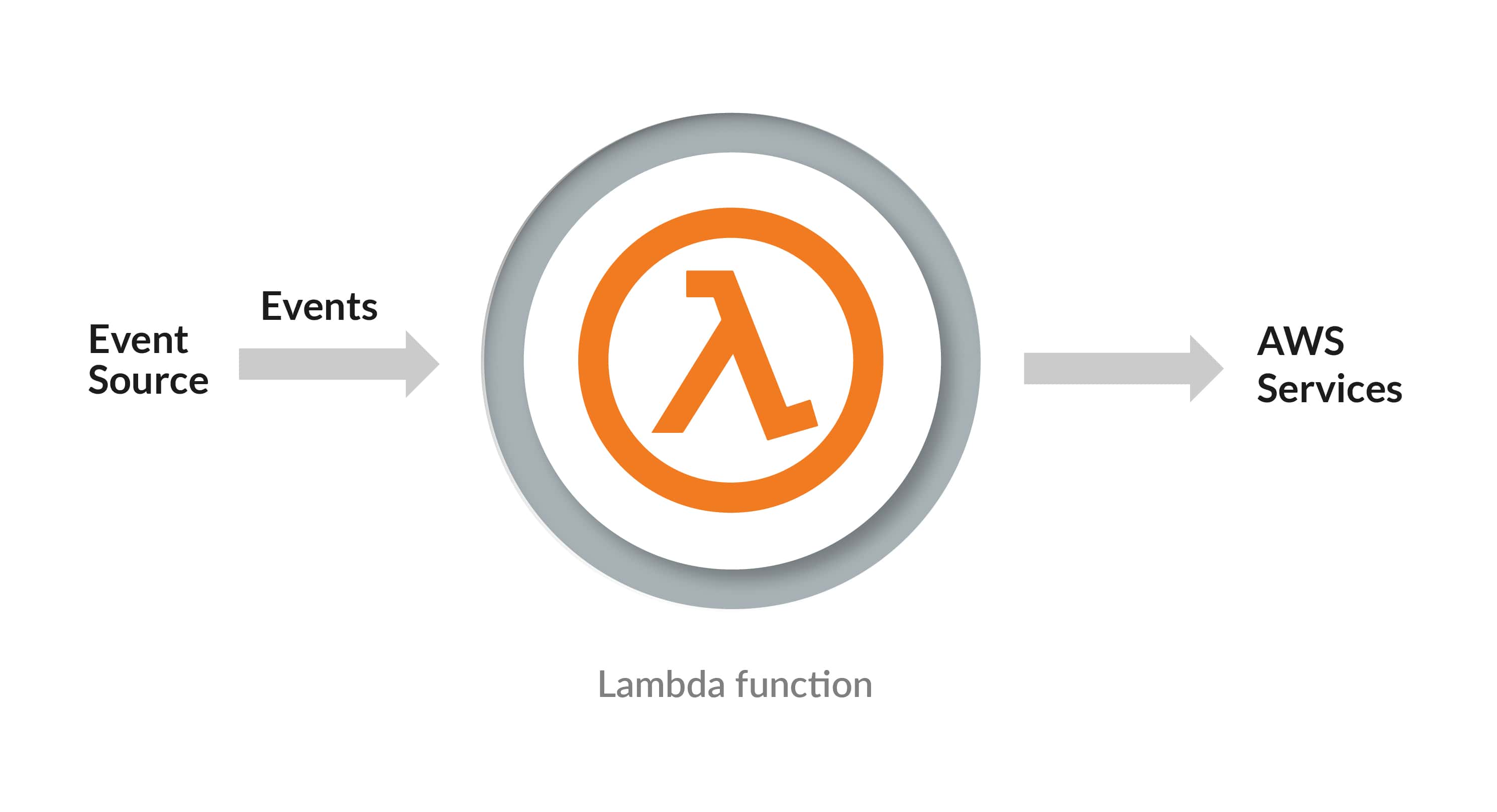AWS Lambda is a large-scale, function-based, provision-free serverless computing service that provides your code with a control plane and logic layer. Lambda belongs to a Function-as-a-Service (FaaS) class of serverless computing that depends on n functions as the delivery and execution structure.
Lambda runs and scales the code within almost every type of program or back-end application with high availability. You don’t need to handle any of the infrastructures that identify events and address them to your function. Using AWS Lambda, you only concentrate on the logic of your application and manage the event sources that run your logic.

The code you run in AWS Lambda may be written in any of the languages that it supports, including Python, Java, C#, Ruby, Go, PowerShell, and Node.js and you may use any compiled native binaries, artifacts, or libraries that can perform along with the runtime environment.
AWS Lambda may execute code in response to such causes as data updates, device state shifts, or user behavior. AWS services like DynamoDB, S3, Kinesis, and CloudWatch can trigger Lambda directly. This allows you to construct a variety of serverless, real-time data processing systems.
If the information provided above seems interesting to you, you may check out guides and tutorials presented by the AWS experts. The guidelines are presented in accordance with your seniority level.
- Here is a 10-minute tutorial for a beginner.
- If you want to dive deeper consider perusing the Developer Guide.
AWS Lambda use cases
Because of the architecture of Lambda, it can offer great advantages over traditional cloud computing applications where:
- Individual activities require limited time to complete
- Every task is generally a stand-alone task
- There is a considerable difference in application workload between the lowest and highest levels
Three of the most growing-popularity AWS Lambda use cases that match these parameters are:
Scalable APIs for your website
Assume you build a website with your backend logic hosted on Lambda. Applying Amazon API Gateway as the HTTP endpoint you invoke your Lambda function over HTTP. With that, the API can be invoked by your web client, and then API Gateway can route the request into Lambda. AWS Lambda scales individual functions automatically according to their requirement, so different sections of your API can scale differently according to current rates of usage. This makes API setups cost-benefit and adjustable.
Processing of data
Integrating AWS Lambda with data sources such as Amazon DynamoDB is not a complicated task and triggering a Lambda function for specific data event types is accessible for the developers. For example, every time an item in DynamoDB is created or updated, you could employ Lambda to process some data, making it a good fit for things like notifications, counters, and analyses.
Process automation
AWS takes care of your better focusing on business logic. With no servers to manage, flexible scaling, and high automated availability, AWS Lambda is a great fit for businesses that don’t require an entire server capacity all the time.
Benefits of AWS Lambda
Quintagroup experts highlight a couple of unique advantages of AWS Lambda over maintaining your own cloud servers. The most significant of them are:
Pay-per-use pricing model
A beneficial point about the AWS Lambda is that its pricing model is based on what you're using. AWS Lambda charges for the amount and length of queries for their services, which is the period the application has to run. This method of billing is typically more cost-effective for workloads which scale dramatically according to time of day.
Fully managed infrastructure
Given that the services are operating on the managed AWS network, you don't have to worry about the underlying servers — AWS can take care of it. This will contribute to substantial savings on maintenance activities such as updating the operating system or network layer management.
Automatic scalability
You don't need to scale up the Lambda operations – AWS Lambda dynamically scales them on your behalf. AWS Lambda generates the instances of the feature on request. There are no scale levels to worry about — and at the same time, as the load rises or decreases, the functions are available.
Want a project with AWS Lambda?
If you are thinking about a project on AWS Lambda, do not hesitate to contact our experts. Being masters in their sphere of software development, they will give you the most valuable piece of information. Just press the button below.
